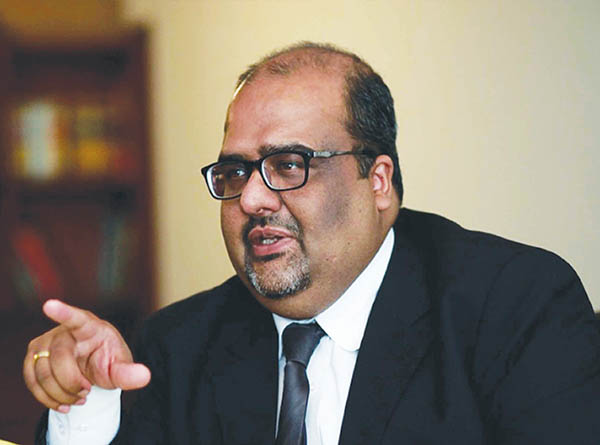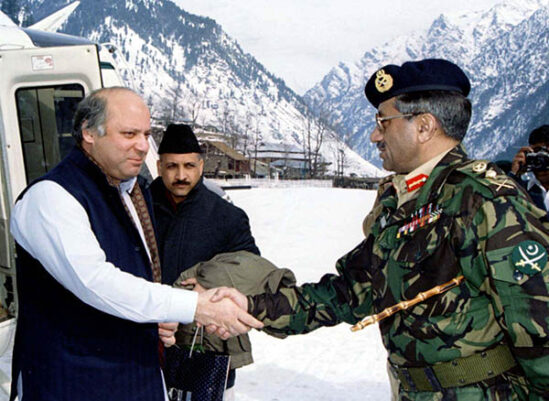
PMSA on Accountability
The PTI government was recently forced to pay a $28.7 million penalty to the asset recovery company, Broadsheet, for the compromises and crimes of past rulers. Narratives talks to the Prime Minister’s Special Assistant on Accountability, Shahzad Akbar, about the case, whether it could have settled the matter, avoided paying the penalty and saved the country from the loss of face in a foreign court.
Q: Is the Broadsheet case bigger than the Panama Scandal, and if so, how?
A. I won’t say whether the Broadsheet case is bigger or smaller than the Panama one, but it is an important case for two reasons. Firstly, it teaches us that we must learn from history so that we do not repeat the same mistakes again. It reveals how corrupt people got off the hook because of political expediency. General Pervez Musharraf gave Nawaz Sharif two National Reconciliation Ordinances (NROs), which eventually paved the way for his return to power the third time, though his illegal assets were known to the government since 2000. The accountability process was damaged because Musharraf allowed Sharif to go to Saudi Arabia in December 2000 despite the cases against him, which his own government had initiated, and then again in 2007 when he (Musharraf) announced the NRO. It was for these very assets that Nawaz had been arrested and disqualified. The arbitrator of the Broadsheet case says that the company was deprived of its share as per its contract with Pakistan, and this was what stopped the investigation of the corruption cases.
The second reason Broadsheet is important is that it further proves the furore over the Panama Scandal was justified. It proves that Nawaz Sharif blatantly lied before the Parliament and to the nation.

Q: What lies at the heart of the Broadsheet dispute?
Simple… First the (then) government enters into an agreement with Broadsheet to trace the ill-gotten assets accumulated abroad by public office holders, and then that goes south. The agreement was simple. A list of 200 people was provided to Broadsheet, and they were tasked to trace their illegal assets. It was agreed that the company would get a 20 percent share for the recovery of any such ill-gotten wealth (whether abroad or in Pakistan, including such cases that Broadsheet may not have been involved in). But in December 2000, a deal was struck between Musharraf and Nawaz Sharif, and he was allowed to go to Saudia Arabia. The problem cannot be laid at the National Accountability Bureau (NAB)’s door, but at the rulers of that time. A big fraud was committed against the nation; the corrupt were allowed to get away, while Pakistan ended up paying a whopping sum as the penalty.
Q: Was there any way we could have saved this loss to the national exchequer?
We have gone through all the processes and reviewed the case minutely. For the arbitration court, Broadsheet’s claim was valid. Pakistani officials, who signed the deal with Broadsheet, did not review the agreement properly and it was in the asset recovery company’s favour. Then, the past governments of the Pakistan Peoples’ Party and the Pakistan Muslim League-Nawaz did not pursue the case because of their own vested interests. The first liability decision came in 2016 and then again in 2018. We have made a commission headed by a former Supreme Court judge, Justice (Retired) Azmat Saeed, to probe how this case was pursued in the past. Our (PTI) government made an appeal, but our initial arbitration was sloppy and weak. The appeal against the arbitrator’s verdict was filed by the last caretaker government and we pursued it. We delayed the payment, but the case was so messed-up that we couldn’t succeed and ended up paying a hefty amount.
Q: The Broadsheet case reflects not just the inefficiency and weakness of our institutions, but also the political opportunism and double standards that exist. So what’s the lesson?
A. The lesson is that we must not fall prey to the quack medicine of building political consensus to save the corrupt. There was a lot of pressure on our government to change the NAB laws to benefit the corrupt, but we did not budge. We did not accept the kind of changes the opposition parties wanted to bring into the NAB laws in the name of reforms. And as a result, now we see the opposition alliance of the PDM (Pakistan Democratic Movement) protesting on the streets. But we are committed to holding the corrupt accountable, despite all the obstacles.
Q: Who is responsible for making a settlement with the wrong party in the name of Broadsheet by paying $1.5 million? Is the lawyer to be held accountable?
Ahmed Bilal Sufi (lawyer) was hired as an external lawyer by the then PPP government. But it was basically former Prime Minister, Yousaf Raza Gilani’s and the law minister’s responsibility. One of the Pakistan High Commission officials in London raised the red flag in 2008 and pointed out to the higher-ups that the names and addresses of the companies did not match. But his concerns were brushed aside and an order was issued to make the payment. The role of High Commission officials is very limited. They just followed instructions.
Q: What steps are being taken now to hold those responsible for this loss of face Pakistan suffered in arbitration and the loss to the national exchequer?
As I said, a commission has been formed to conduct an independent inquiry and assign responsibility to those concerned
We know that the opposition is making a hue and cry over the issue, but they would have protested even if any other independent person had been appointed as head of the commission in place of Justice (R) Azmat Saeed. They know what their crimes are, they know what they did to damage the arbitration, and they are looking for a way out. The Pakistani authorities have had evidence about the illegal assets of the Sharifs since 2000, including the Avenfield Apartments in London and properties in Saudi Arabia. For example, this family failed to give details of the resources which were used to set up the Chaudhary Sugar Mills in 1991 when Nawaz Sharif was the prime minister. That mill used to launder money.
Q: Will the Broadsheet case help the accountability process?
Yes, it will. Corruption cases including those against the Sharifs, Aftab Sherpao, the Schon Group and many others will be strengthened. It is also a lesson about how the corrupt evade accountability when murky deals like the NRO are made.

